The Ultimate Guide to Service Dog Tasks: A Comprehensive List by Disability
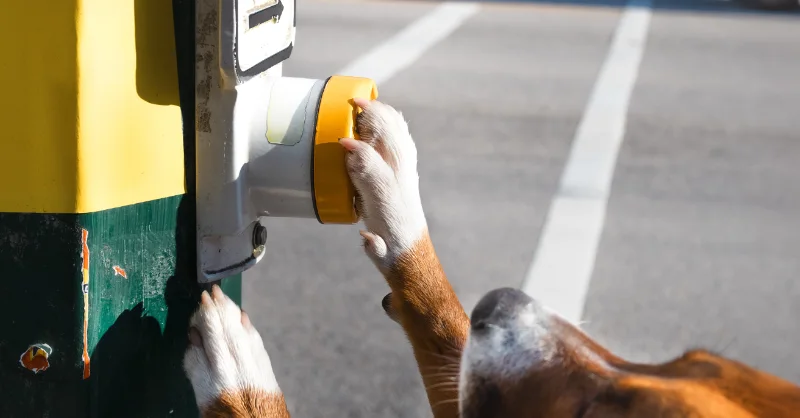
Service dogs are remarkable animals trained to assist individuals with disabilities by performing various tasks. According to the Americans with Disabilities Act (ADA), a dog can become a service dog if it has been trained to perform a task that helps with the handler’s health condition.
Service dogs can help with physical disabilities as well as psychiatric ones. You can train a service dog with the help of a professional trainer or entirely on your own. In this guide, we provide an extensive list of service dog tasks categorized by the disabilities they assist with.
- Mobility Assistance
- Psychiatric Assistance
- Visual Impairment Assistance
- Hearing Assistance
- Autism Assistance
- Seizure Response and Alert
- Diabetes Alert
- Allergy Detection
- Chronic Illness Assistance
- FAQ About Service Dog Tasks
Mobility Assistance
Mobility assistance dogs are indispensable for people with physical disabilities that affect movement, balance, or strength. Whether someone lives with multiple sclerosis, cerebral palsy, spinal cord injuries, or arthritis, these dogs help restore independence.
Common tasks include:
- Retrieving dropped items (e.g., phone, keys)
- Opening and closing doors
- Turning lights on/off
- Pulling wheelchairs
- Providing balance support while walking or on stairs
- Assisting with transfers (e.g., from wheelchair to bed)
- Carrying items in a backpack or saddlebag
- Pushing elevator buttons and automatic door openers
- Helping with dressing/undressing
- Retrieving adaptive equipment like crutches or a walker
- Navigating obstacles in crowded areas
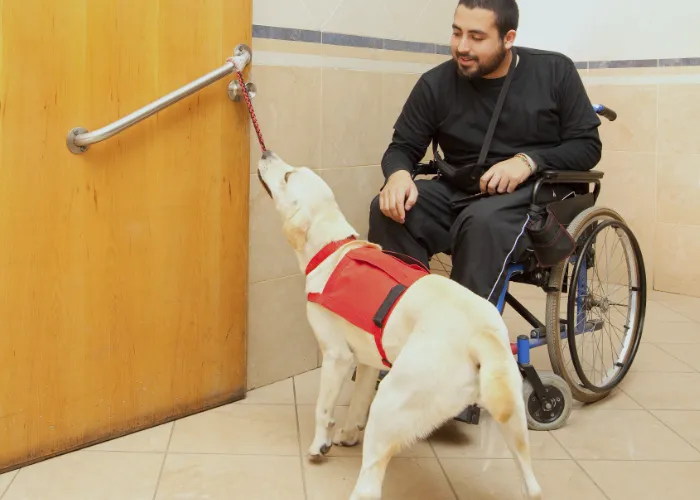
Psychiatric Assistance
Psychiatric service dogs support individuals with mental health conditions such as post-traumatic stress disorder (PTSD), anxiety disorders, depression, or bipolar disorder.
Core tasks include:
- Providing deep pressure therapy during anxiety or panic attacks
- Interrupting self-harming or compulsive behaviors
- Reminding the handler to take medication
- Alerting to the onset of panic attacks or dissociative episodes
- Providing grounding in overwhelming public spaces
- Creating physical barriers in crowded areas
- Leading the handler to a safe location during distress
- Waking the handler from nightmares or night terrors
- Providing tactile stimulation (by licking, for example) to help with emotional regulation
- Interrupting negative thought spirals
Hearing Assistance
Hearing dogs assist individuals who are deaf or hard of hearing by alerting them to important sounds in their environment.
Key tasks include:
- Alerting to doorbells, knocking, or alarms
- Signaling when a phone is ringing or an alarm goes off
- Waking the handler in emergencies (e.g., fire alarms)
- Notifying the handler of sounds like cooking timers or appliance beeps
- Indicating when someone is calling their name
- Alerting to approaching vehicles when outdoors
- Leading the handler to the source of a sound
Visual Impairment Assistance
Guide dogs, trained to help people with visual impairments, enable individuals with partial or complete vision loss to navigate their environment safely and independently.
Tasks include:
- Guiding around obstacles (e.g., tables, people)
- Stopping at curbs, steps, and changes in elevation
- Locating doorways, elevators, escalators
- Retrieving dropped items
- Finding empty seats in public spaces
- Alerting to changes in terrain (e.g., uneven surfaces, low branches)
- Guiding to key locations (e.g., home, bus stop)
- Alerting to oncoming traffic or hazards
- Leading the handler to safety in emergencies
Autism Assistance
Autism assistance dogs provide invaluable help to individuals on the autism spectrum by enhancing social interaction, emotional regulation, and safety.
Typical tasks include:
- Interrupting repetitive behaviors (e.g., rocking, hand-flapping)
- Providing deep pressure therapy during meltdowns
- Alerting to self-injurious behaviors
- Tracking and locating individuals who may wander
- Providing a social bridge in conversations or public interactions
- Interrupting sensory overload
- Guiding the individual away from overwhelming stimuli
- Providing comfort during transitions in routine
- Assisting with focus and attention in learning environments
- Helping navigate public spaces safely
Seizure Response and Alert
Seizure response dogs assist individuals during seizures and can sometimes alert to an oncoming seizure, providing an extra layer of protection.
Essential tasks include:
- Alerting to an oncoming seizure
- Staying with the handler during a seizure
- Activating emergency alert systems or seeking help
- Retrieving medications or phones
- Positioning the handler to prevent injury
- Clearing dangerous objects from the area
- Providing physical support for post-seizure recovery
- Guiding the handler to a safe location before a seizure
Diabetes Alert
Diabetes alert dogs are trained to detect changes in their handler’s blood sugar levels and act accordingly.
Tasks include:
- Alerting to high blood sugar (hyperglycemia)
- Detecting and alerting to low blood sugar (hypoglycemia)
- Retrieving diabetes supplies (e.g., glucose meters, insulin)
- Bringing juice or glucose tablets
- Alerting others if the handler becomes unresponsive
- Carrying emergency medical information
- Pressing a medical alert button or seeking help when necessary
- Providing stability during periods of dizziness
Share this image on your site
Allergy Detection
Allergy detection dogs are trained to sense specific allergens that could be dangerous or life-threatening to their handlers.
Common tasks include:
- Detecting allergens like peanuts, tree nuts, or gluten in food
- Alerting to the presence of dairy products or shellfish
- Detecting airborne allergens (e.g., pollen, dust)
- Checking food or areas for contamination
- Retrieving emergency medications (e.g., EpiPens)
- Signaling before an allergic reaction occurs
- Alerting to allergens on surfaces
- Leading the handler away from unsafe environments
Chronic Illness Assistance
Service dogs can help individuals with chronic illnesses like fibromyalgia, chronic fatigue syndrome, or Ehlers-Danlos syndrome manage daily tasks and health concerns.
Tasks include:
- Providing mobility support during fatigue or pain episodes
- Retrieving medications or water
- Alerting to changes in heart rate, blood pressure, or other symptoms
- Providing deep pressure therapy to alleviate pain
- Carrying medical supplies or equipment
- Assisting with household tasks to conserve energy
- Alerting to oncoming flare-ups of symptoms
- Helping with joint stability and preventing falls for Ehlers-Danlos syndrome patients
Frequently Asked Questions (FAQ) About Service Dog Tasks
1. What are the most common tasks performed by service dogs?
The most common tasks performed by service dogs include retrieving dropped items, providing mobility support, guiding individuals with visual impairments, alerting to sounds for those who are deaf or hard of hearing, and offering deep pressure therapy for anxiety or PTSD. These tasks are vital for the independence and well-being of individuals with various disabilities.
2. Can service dogs be trained to perform multiple tasks for different disabilities?
Yes, service dogs can be trained to perform multiple tasks, especially for individuals with more than one disability. For example, a dog may help with mobility support while also alerting to blood sugar changes for someone with diabetes. Service dogs are highly adaptable, and their training can be customized to fit the handler’s needs.
3. How do service dogs learn to detect medical conditions like seizures or low blood sugar?
Service dogs undergo specialized training to detect subtle changes in their handler’s body, such as changes in scent or behavior. In the case of diabetes alert dogs, they can sense fluctuations in blood sugar levels through scent. Similarly, some seizure response dogs can detect changes in their handler’s body before a seizure occurs, although this ability isn’t guaranteed in all seizure dogs.
4. Can service dogs help individuals with mental health conditions?
Yes, psychiatric service dogs are trained to assist individuals with mental health conditions such as PTSD, anxiety, depression, and bipolar disorder. They can provide deep pressure therapy, interrupt harmful behaviors, offer grounding during anxiety attacks, and help mitigate symptoms in public spaces.
5. Can any dog become a service dog?
While many breeds can become service dogs, the suitability of a dog depends on their temperament, ability to learn tasks, and health. Common breeds for service work include Labrador Retrievers, Golden Retrievers, and German Shepherds, but smaller dogs or mixed breeds can also serve as long as they are capable of performing the required tasks.
About the Author: The writing team at Service Dog Certifications is made up of folks who really know their stuff when it comes to disability laws and assistance animals. Many of our writers and editors have service dogs themselves and share insights from their own experiences. All of us have a passion for disability rights and animals.
Related Articles
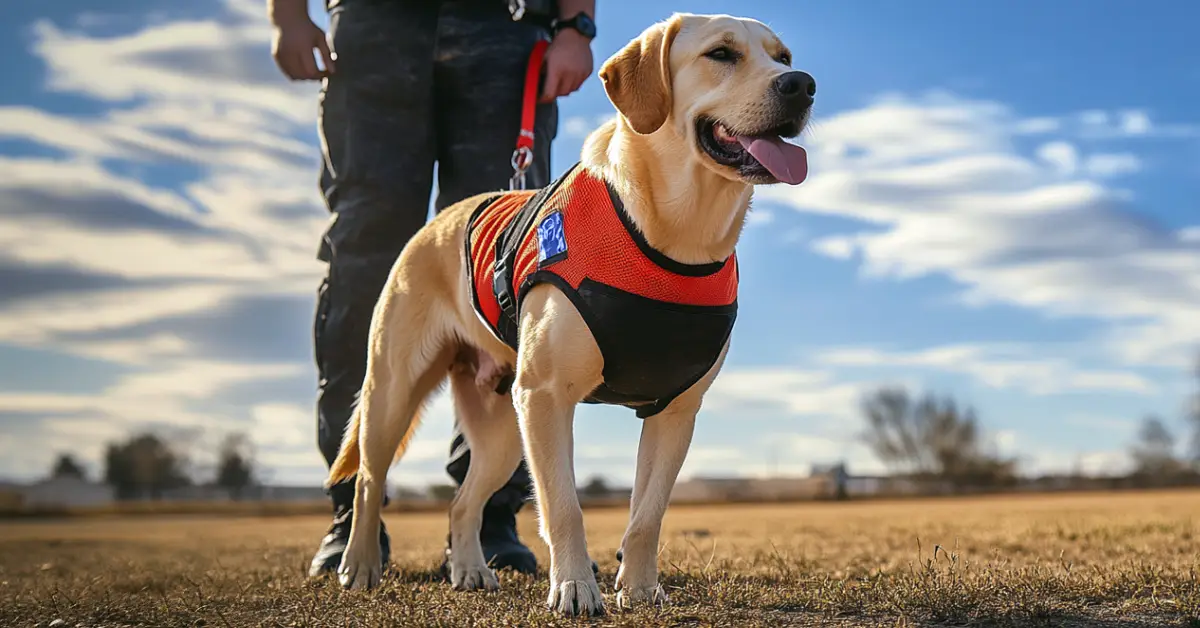
How Much Does It Cost to Train a Service Dog
Training a service dog doesn’t have to break the bank! The cost ranges from free (yes, free!) to $50,000, depending on whether you choose self-training ($0 to $7,000), a hybrid approach with professional guidance ($7,000–$15,000), or full professional training ($15,000–$50,000). The price also varies based on your particular disability and the service dog tasks you […]

Read More

How to Train a Service Dog for Anxiety – 6 Important Steps
We’ve probably all seen a service dog helping to guide a person that is physically challenged but did you know you can also have a service dog if you suffer from anxiety? Dogs can be especially helpful to those that suffer from any number of mental or emotional issues such as PTSD or social anxiety. […]

Read More
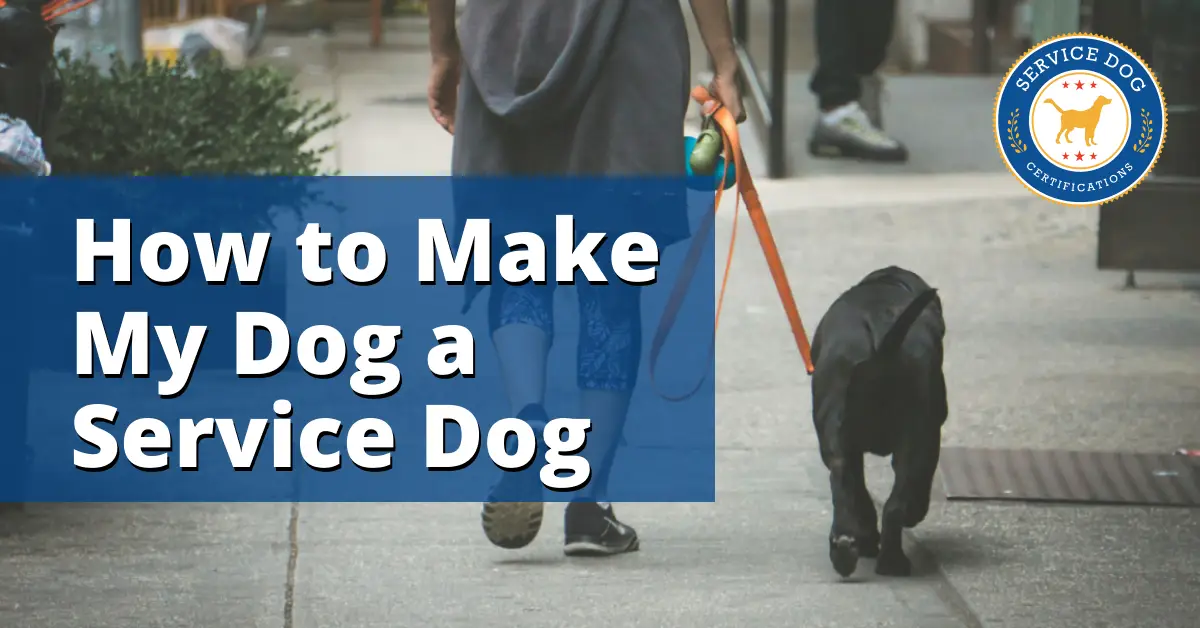
How to Make My Dog a Service Dog
The process of making your dog a service dog is easy if you have a qualifying disability and can be done in five steps. The hardest step in the process is the third one — training — and often the most time-consuming. The good news is you have options along the way for each and […]

Read More
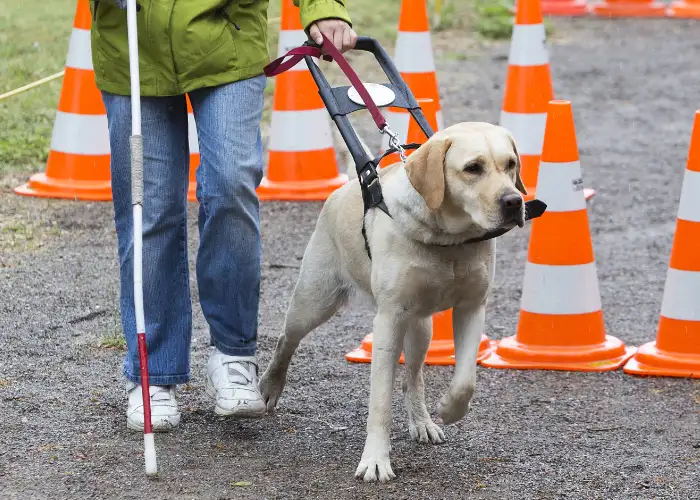
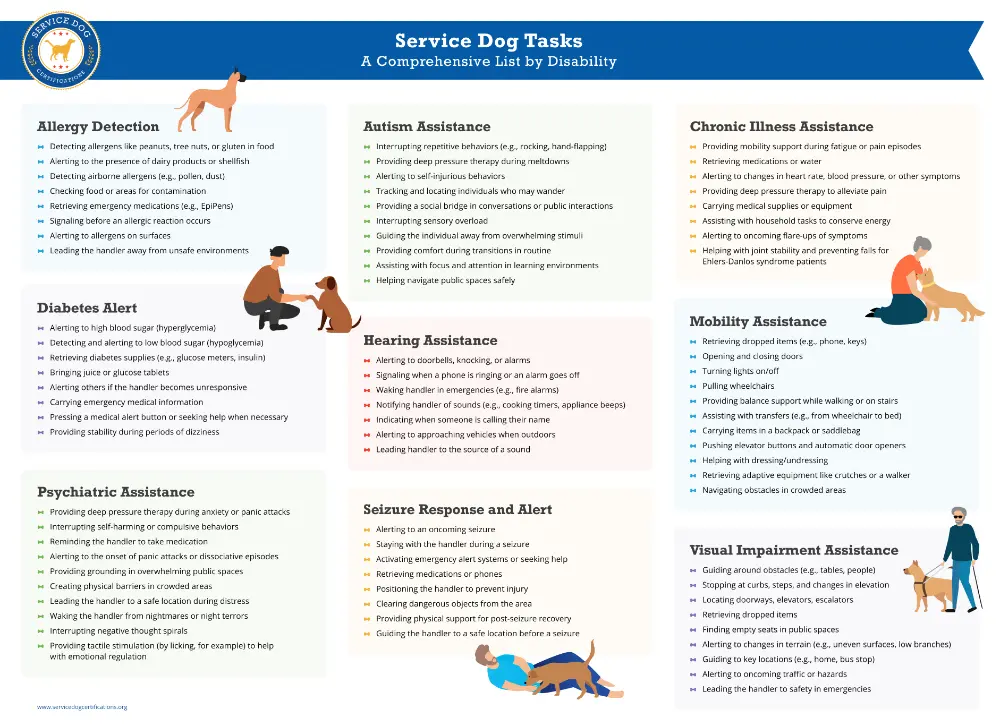
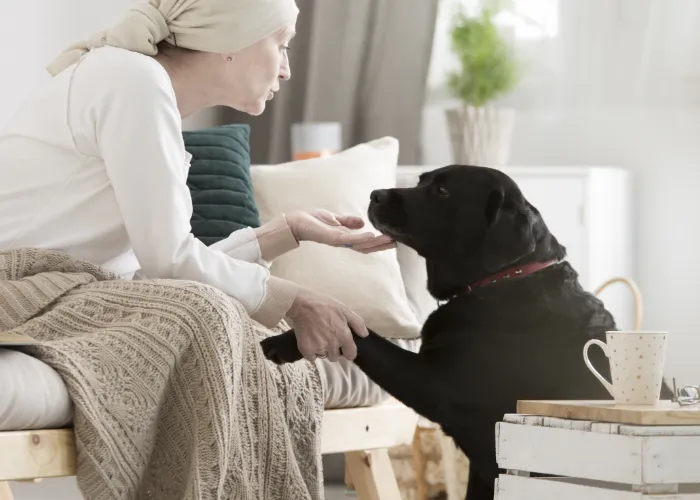
amazing article i used it for my school writing!
Thanks for the compliment! We appreciate it.